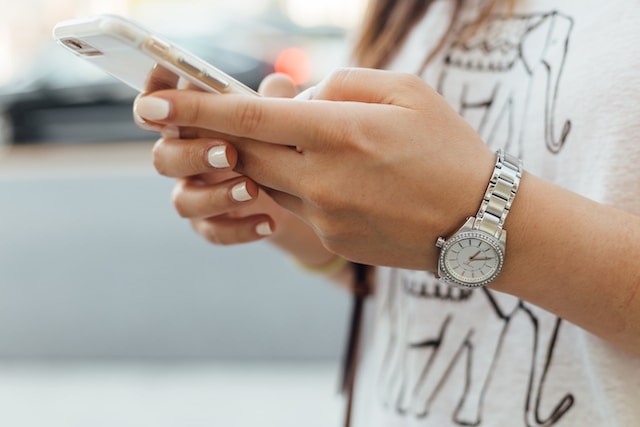
Due to its effects on the brain, social media is addictive both physically and psychologically. According to a new study by Harvard, self-disclosure on social networking sites activates the same part of the brain that is triggered when taking an addictive substance. The reward area in the brain and its chemical messenger pathways influence decisions and sensations. When someone experiences something rewarding or uses an addictive substance, neurons in the primary dopamine-producing areas in the brain are activated, and dopamine levels rise.
This is evident in social media usage; when a person receives a notification, such as a like or mention, the brain receives a rush of dopamine and sends it along reward pathways, causing the individual to feel pleasure. Social media provides an endless amount of immediate rewards in the form of attention from others for relatively minimal effort.
Another perpetuating factor of social media addiction is the fact that the reward centers of the brain are most active when people talk about themselves. In the non-virtual world, it is estimated that individuals speak about themselves around 30 to 40% of the time; however, on social media, people show off their life and accomplishments, so they talk about themselves a staggering 80% of the time. When someone posts a picture, they may receive positive social feedback, which stimulates the brain to release dopamine, rewarding that behavior and perpetuating the social media habit.
Social media use becomes problematic when someone views social networking sites as an essential coping mechanism to alleviate stress, loneliness, or depression. Social media use provides these individuals with continuous rewards that they are not receiving in the real world, so they engage in the activity more and more. This continuous use eventually leads to multiple interpersonal problems, such as ignoring real-life relationships, work or school responsibilities, and physical health, which can then exacerbate an individual’s undesirable moods. This then causes people to engage in social networking behavior even more as a way of relieving dysphoric mood states. When social network users repeat this cyclical pattern of relieving undesirable moods with social media use, the level of psychological dependency on social media increases.
Social Media and Mental Health
Research has shown that there is an undeniable link between social media use, negative mental state, and low self-esteem. These negative emotional reactions are not only produced due to the social pressure of sharing things with others but also the comparison of material things and lifestyles that these sites promote.
On Instagram and Facebook, users see curated content: advertisements and posts that are specifically designed to appeal to users based on their interests. Users may even see others posting about their great jobs, excellent partners, or beautiful homes and feel happy or inspired as a result. Others, however, may see these pictures and feel jealous, depressed, or even suicidal because their own life is not as “perfect” as those of people they see on Facebook or Instagram.
Recent studies have found that frequent social network users believe that other users are happier and more successful than they are, especially when they do not know them well in reality. Social media facilitates an environment in which people compare their realistic offline selves to the flawless, filtered, and edited online versions of others, which can be detrimental to mental well-being and perception of self. Excessive social media use can not only cause unhappiness and general dissatisfaction with life in users but also increase the risk of developing mental health issues such as anxiety and depression. Constantly comparing oneself to others can lead to feelings of self-consciousness or a need for perfectionism and order, which often manifests as a social mental disorder.
Another aspect of social anxiety triggered by online media use is the fear of missing out (FOMO), which is the intense fear of not being included or missing an event. Users might even see pictures of parties to which they weren’t invited or glimpses of fun outings that they were unable to attend due to work or school obligations and feel anxious that nobody misses them as a result – fearing that they’re going to be forgotten since they’re not there. FOMO can take a toll on self-esteem and result in compulsive checking of social media platforms to make sure that a user isn’t missing out on anything, which may cause problems within the workplace and classroom. A study conducted by the university found that social media has a significantly detrimental effect on the emotional well-being of chronic users and their lives, negatively impacting their real-life relationships and academic achievement.
At-risk youth
An estimated 27% of children who spend three or more hours every day on social media exhibit symptoms of poor psychological health. Overuse of social networking sites is far more problematic in children and young adults because their brains and social skills are still developing. Even though users interact with one another on these platforms, many of these interactions don’t necessarily translate well to the real world.
